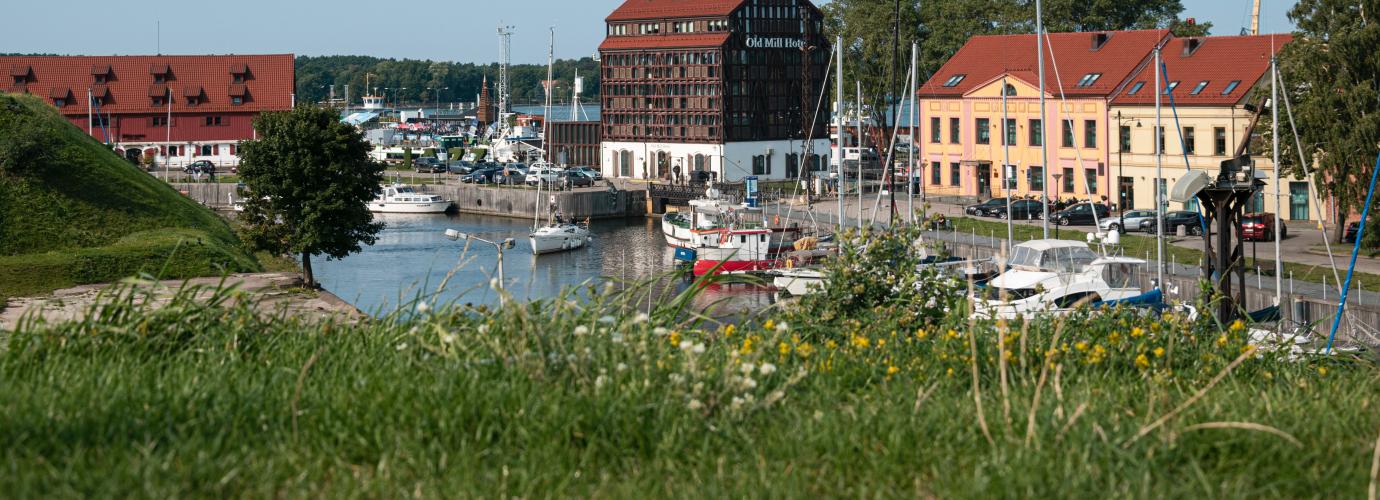In Lithuania, adult education may be formal and non-formal. The providers of formal and non-formal education are listed below.
Institutions providing formal adult education
Lithuanian adults can follow formal education programmes at several types of institutions:
- adult general education schools (education centres), general education schools with classes for adults
- vocational education and training (VET) schools
- higher education institutions (HEI) − colleges and universities
These institutions (except general education schools) offer continuous professional development and retraining courses, which are also an integral part of adult education.
They comprise, Adult general education schools (education centres) and general education schools with classes for adults. Formal adult education schools (education centres) belong to the group of general education schools, i.e., it may be an adult pre-gymnasium, an adult lower secondary education school, or an adult gymnasium. Adult education schools provide adult primary (ISCED 1), lower secondary (ISCED 2), parts I (grades 5–8) and II (grades 9–10) and upper secondary (ISCED 3) curricula. Equally, these curricula can also be provided in adult classes. General education schools are authorised to establish these classes. This possibility enables adults to learn closer to home when there is no adult education institution in the area.
Schools create conditions for learners to study certain compulsory and elective or additional and non-formal subjects in a modular way. Learners can also choose a distance-learning mode of study. Adult schools that have the necessary material facilities and vocational training curricula may provide vocational education and training for learners to acquire a professional qualification. The state funds adult education that is provided in the above-mentioned institutions. The Education and Science Institution Registry (AIKOS) states that there are 56 adult general education schools and general education schools with classes for adults. All of them have been established by municipalities[1]. Geographically, bigger cities tend to have several adult schools. Almost all municipality[2] centres have at least one school in which adults can learn.
Vocational education and training (VET) schools. State, municipal and non-state VET institutions provide vocational education and training. VET is their main activity. According to data from AIKOS, there are 50 state VET institutions and 13 non-state VET institutions in Lithuania. There are more VET institutions in bigger cities, but it is possible to access VET in every municipality. Freelance teachers and other natural and legal persons, for whom VET is not their main activity, may also provide VET. VET institutions may, in addition to VET, provide upper secondary or even lower secondary education. There are specialised VET institutions for those with special education needs. To make VET more flexible and able to meet the needs of the labour market, modular VET programmes have been added to traditional ones. Apprenticeship as a form of learning was introduced.
An adult who has finished an upper secondary education may enter an HEI – a university or a college. Other than university or college studies, the HEI may provide retraining or non-tertiary study programmes. More on this in Chapter 7, Higher education.
Institutions organising and providing non-formal adult education
Institutions offering non-formal adult education, adult education centres, high schools, institutions providing continuous professional development, companies, non-governmental organisations, adult education specialists, etc., can provide non-formal adult education. Employers can organise adult education and this can be conducted at the workplace. According to AIKOS, there are 141 non-formal adult education schools. There is no data on the total number of all types of institutions providing non-formal adult education.
There is a one-stop digital education platform – the Individual Learning Accounts system – dedicated to learning and developing competences for adults. Working people aged 18–65 who have already obtained a qualification or higher education, can apply for €500 in learning funding in the national priority areas. Most of the funding is allocated to programmes to develop digital competences, but there is also funding for programmes to improve adult literacy, multilingualism, maths, engineering, learning to learn and other competences. Digital certificates are issued on completion of the training. Universities of the Third Age (TAU) provide non-formal education for senior citizens. In this case, the word “university” does not have its usual meaning. TAU may be a programme implemented by a municipality institution or HEI. It may be founded by natural persons but not necessarily be registered as a legal entity. TAUs provide courses in history, political science, foreign languages and information technology. People can learn to dance, sing or spend leisure time at exhibitions or on trips. The activities of public organisations stimulate the integration of elderly people into society and awaken or maintain the desire to keep learning.
The Employment Services organisation deals with the issues of qualification acquisition and training for the unemployed. It implements the employment support policy. Labour Services specialists prepare an individual plan together with the job seeker in which they set employment goals and how to achieve them. If a job seeker’s qualification or competence is not in demand in the labour market and they want to retrain, they can participate in VET and gain a profession which is in demand in the labour market. Labour Services provide their services free of charge. The state funds retraining and the acquisition of new qualifications from its own funds and from EU structural funds.
Non-formal education is also provided by formal education institutions. They include VET institutions and companies that have included such activities in their regulations or have licences issued by the Ministry of Education, Science and Sport to provide such training.
Other ministries, such as the Ministry of National Defence, the Ministry of Foreign Affairs, the Ministry of Finance, the Ministry of Transport and Communications, the Ministry of Health and the Ministry of Culture have their own in-house structures for non-formal adult education where specialists can improve their professional qualifications in their respective fields.
[1] Private individuals or the state may establish a general education school (for adults also). At this moment, there are no such adult education schools.
[2] Lithuania is divided into 60 administrative units – municipalities.

